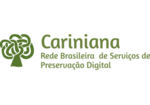Creativity in the Arts and Science
DOI:
https://doi.org/10.4025/rvc.v1i1.63579Palavras-chave:
Criatividade, Artes, CiênciasResumo
Only a very rash person would attempt to define creativity in either the arts or science, let alone in both. There is no known recipe for creativity, no magic formula that opens the sluices of originality and guarantees a steady flow of new ideas and fresh insights. Indeed, we do not even know whether creativity is all kind and whether it can be meaningfully discussed under one general category. All we can legitimately do is describe creativity as it is manifested in various fields of human endeavour, from the creation of a beautiful poem to the invention of a new scientific theory. We tackle this problem in the first part of this article; in the second, we take a closer look at artistic and literary representation of science in Europe from the Renaissance to the Romanticism, and, in the third part, we examine the current situation.
Downloads
Referências
BUTTERFIELD, Herbert. The Origins of Modern Science 1300-1800. Toronto: Clarke, Irwin &Co., 1968.
DASTON, Lorraine Daston; PARK, Katharine. Wonders and the Order of Nature 1150- 1750. New York: Zone Books, 1998.
DIRAC, Paul. The Evolution of the Physicist's Picture of Nature. In: Scientific American, may, vol. 208, 5, p. 47, 1963.
HARDY, Godfrey Harold. A Mathematician's Apology. Cambridge: Cambridge University Press, 1967.
HOUSMAN, Alfred Edward. The Name and Nature of Poetry. Ed. John Carter. In:
HOUSMAN, Alfred Edward. Selected Prose. Cambridge: Cambridge University Press, 1961.
HUXLEY, Aldous Huxley. Brave New World. London: Penguin Modern Classics Edition, 2020.
KOESTLER, Arthur. The Act of Creation. London: Hutchinson,1964.
NEVES, Marcos Cesar Danhoni; SILVA, Josie Agatha Parrilha. Disturbing the Perspective: The New Post-Copernican Moon of Galileo and Cigoli. In: Proceedings of the NPA Washington, 2011, vol. 8, no. 2, pp. 1-7.
NICOLSON, Marjorie Hope. Newton Demands the Muse. Princeton: Princeton University Press, 1966 (apud HAYDON, Benjamin. Autobiography and Memoirs).
SHELLEY, Mary. Frankenstein. London: Dent (Everyman Library), 1979. VALERY, Paul. The Opening Lecture of the Course. Trad. Ralph Manheim. In:
VALERY, Paul. Poetics in Aesthetics (Collected Works). New York: Pantheon Books, 1964.













